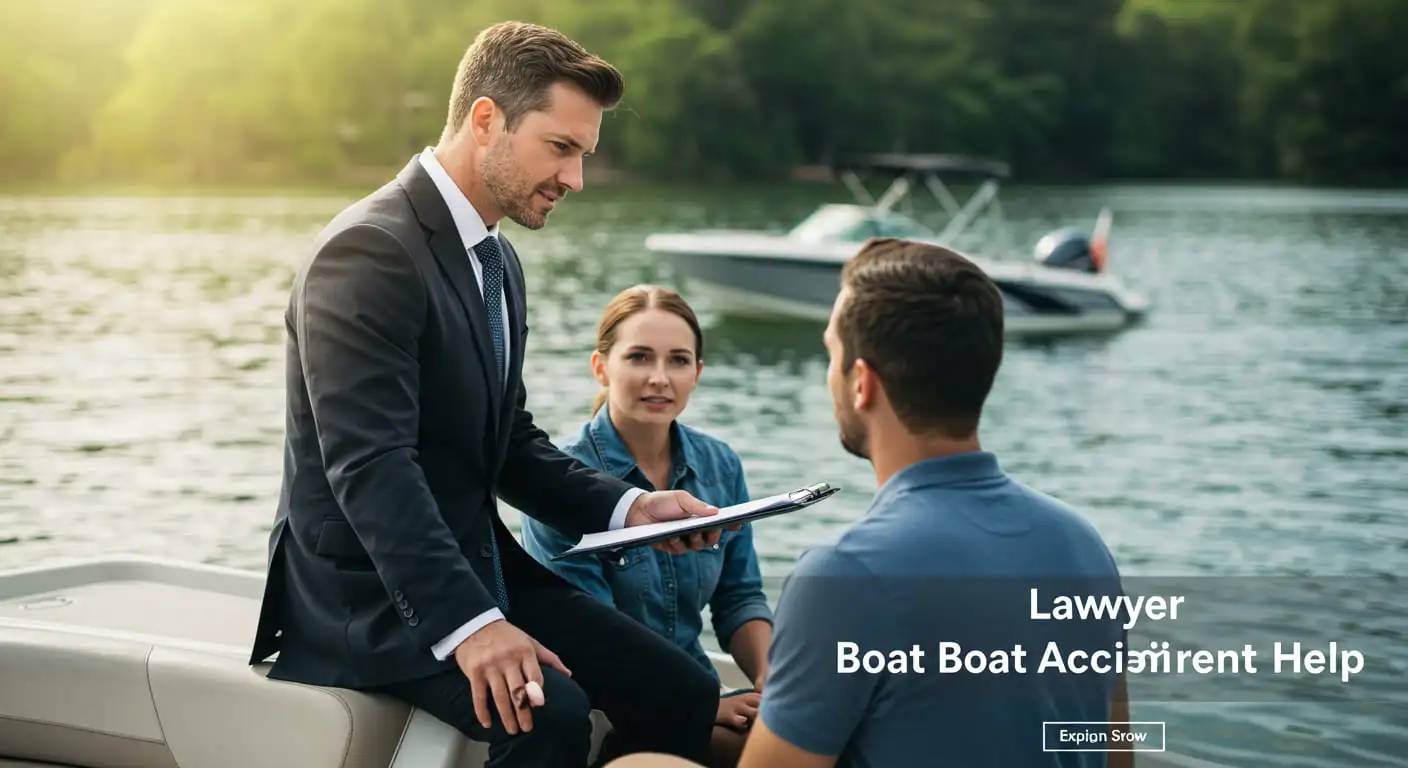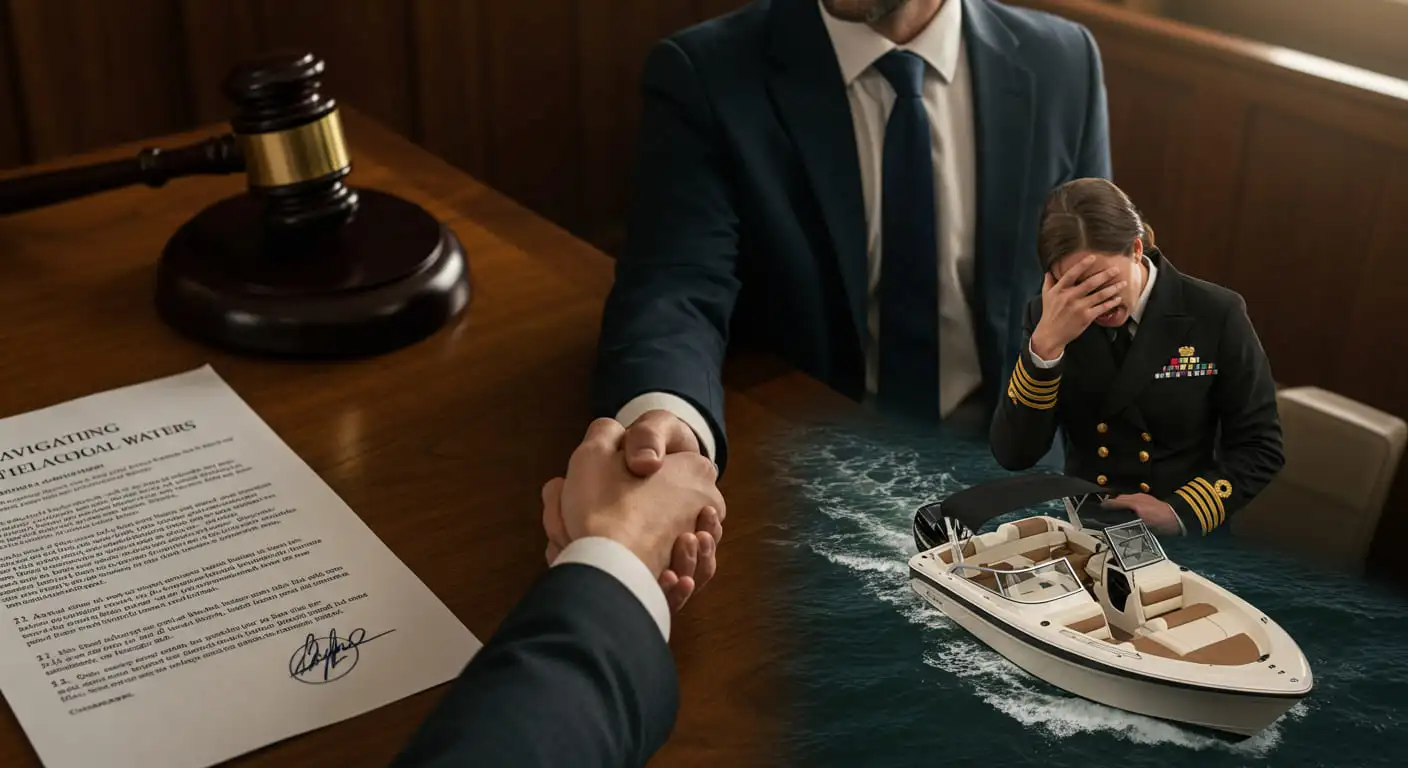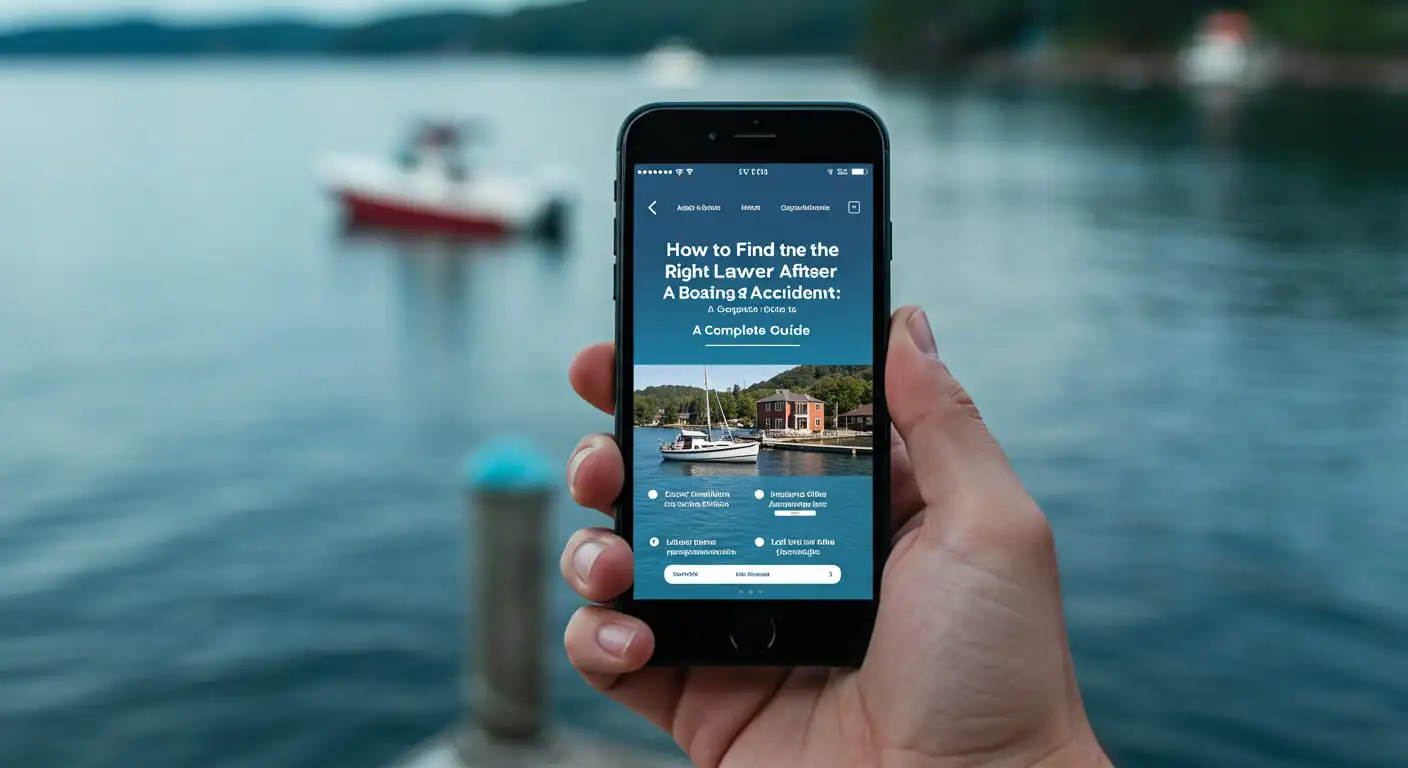Injured in a boating accident? Learn your legal rights, how to file a boat accident claim, and seek fair compensation with expert guidance.
Boat Accident Claim? Know Your Rights
Understanding Your Legal Rights After a Boat Accident
When you’re involved in a boating accident, confusion and chaos often follow. Whether it’s a minor collision or a serious boat accident injury, knowing how to respond is crucial. Understanding your rights and the process of filing a boat accident claim can make a significant difference in your recovery—both physically and financially.
What Is a Boat Accident Claim?
A boat accident claim is a legal request for financial compensation after being injured or suffering property damage in a boating incident. These claims can arise from collisions between vessels, falls on deck, fires, mechanical failures, or even incidents caused by operator inattention or alcohol use.
Filing a boat accident claim allows victims to recover costs related to:
- Medical treatment
- Lost income
- Property damage
- Pain and suffering
Common Causes of Boating Accidents
Knowing the cause of a boating accident can help determine who is liable. Some of the most common causes include:
- Operator inexperience or negligence
- Boating under the influence (BUI)
- Speeding or reckless maneuvers
- Poor weather conditions
- Mechanical failure or lack of maintenance
If your accident was caused by someone else’s carelessness, you have the right to seek boat accident compensation.
Steps to Take Immediately After a Boating Accident
- Ensure Safety First:
Check everyone for injuries and get to safety if possible. Provide first aid when necessary. - Notify Authorities:
In the U.S., serious boating accidents must be reported to the U.S. Coast Guard or local authorities, especially if there’s injury, death, or significant property damage. - Collect Information:
Take down the names, addresses, and registration numbers of all vessels involved. Get contact information from any witnesses. - Take Photos:
Document damage, injuries, weather conditions, and the surrounding area. These can serve as vital evidence in your boat accident claim. - Seek Medical Help:
Even if injuries seem minor, seek medical attention. Some symptoms may appear days later.
Who Can File a Boat Accident Claim?
You may be eligible to file a boat accident claim if you are:
- A passenger injured during a ride
- A boat operator hit by another negligent operator
- A swimmer or bystander hurt by a reckless boater
- The owner of damaged property due to the accident
Even if you were partially at fault, many states allow for partial recovery under comparative negligence rules.
Types of Compensation in Boating Accident Cases
Victims of boating accidents may qualify for several types of boat accident compensation, including:
1. Medical Expenses
Emergency care, hospital stays, surgery, medication, and rehabilitation are all reimbursable costs.
2. Lost Wages
If injuries prevent you from working, you can claim income lost during your recovery period.
3. Pain and Suffering
Physical discomfort, mental distress, PTSD, and loss of enjoyment of life fall under non-economic damages.
4. Property Damage
You may be reimbursed for boat repairs or the cost to replace damaged personal items like electronics or clothing.
5. Future Losses
Serious injuries may lead to long-term medical care or permanent disability, both of which can be claimed in a lawsuit.
How to File a Boat Accident Claim
The process of filing a boat accident claim involves several steps:
- Report the Accident
File a formal accident report with the Coast Guard or state agency if the law requires it. - Notify Insurance Companies
Whether it’s your policy or another party’s insurer, start the claims process promptly. - Preserve Evidence
Save medical reports, repair invoices, photos, and witness statements. These are essential for proving your claim. - Hire a Boating Accident Lawyer
An experienced attorney can guide you through legal complexities and help negotiate with insurers or file a lawsuit.
What If Insurance Denies Your Claim?
Insurance companies often look for reasons to minimize or deny claims. Common reasons for denial include:
- Claim was filed too late
- Insufficient evidence
- Policy exclusions
- Disputes over who was at fault
If your claim is denied, a boating accident lawyer can challenge the decision and, if needed, take the case to court.
Statute of Limitations for Boat Accident Claims
There’s a limited window to file a boat accident claim, known as the statute of limitations. This timeframe varies by state but is often between 1 to 3 years. If you miss this deadline, you may lose your right to compensation altogether.
When to Contact a Boating Accident Lawyer
It’s wise to speak with a boating accident lawyer as soon as possible if:
- Injuries are severe
- Liability is unclear
- You are being blamed for the accident
- The insurance company is offering a low settlement
Legal counsel can evaluate your case, estimate potential compensation, and protect your rights every step of the way.
Safety Tips to Prevent Future Accidents
- Take a certified boating safety course
- Never operate a vessel under the influence
- Check weather forecasts before heading out
- Wear life jackets at all times
- Regularly inspect your vessel for maintenance issues
Preventing accidents begins with responsible boating.
Frequently Asked Questions (FAQ)
- Do I need a lawyer for a boating accident?
Yes, especially if injuries are serious or there’s a dispute over fault. A boating accident lawyer helps protect your legal rights. - What should I do immediately after a boat crash?
Call for help, assess injuries, exchange information, document the scene, and notify the authorities. - Can I still file a claim if I was partly at fault?
In most states, yes. You can recover a reduced percentage based on your share of fault. - How long do I have to file a boat accident claim?
Typically 1 to 3 years, depending on your state. Consult a lawyer to confirm your deadline. - What evidence strengthens my boat accident claim?
Photos, medical records, witness statements, and Coast Guard reports are vital. - What happens if the other boat didn’t have insurance?
You may file a claim through your own policy if it includes uninsured boater coverage. - Can I claim compensation for emotional trauma?
Yes, emotional distress and pain and suffering are valid non-economic damages. - What if I was injured as a passenger?
You still have full rights to file a boat accident claim against the negligent party. - How long does it take to settle a boat accident claim?
Anywhere from a few weeks to over a year, depending on the complexity of the case. - Is a boat accident considered a personal injury case?
Yes. It falls under personal injury law, particularly if caused by another person’s negligence.
Final Thoughts
A boating accident can be life-altering. But with the right steps—and the right support—you can recover both physically and financially. Know your rights, act quickly, and seek help from a skilled boating accident lawyer to pursue the boat accident compensation you deserve.
Leave a reply













